Vintage Laptop CMOS Battery Leaks
Vintage laptops released in the 1990s are dropping dead fast. And it's all because of the type of CMOS batteries that they used. Unlike today when all laptops use Lithium CMOS batteries, most in the 90s used NiCad or NiMH chemistry packs, usually multi-cell packs made up of button cell style batteries. These could range from 1 to 9 cells, but they all have one thing in common: They leak nearly 100% of the time. In most laptops that used them, the batteries were placed near or directly on the main motherboard of the system, causing corrosion and chaos all around. Most of these batteries were made by VARTA and were green in color, but some brands used custom-made ones or others. Just look out for anything suspicious when taking a laptop apart - if it doesn't say Lithium on it, get it out!
The worst thing about these batteries is how few people know about them. Most who have a few old laptops will know that "hey, this series of Toshiba laptops has these weird green batteries that leak", or maybe another knows that Dell laptops have them. Few seem to know however, that nearly every brand used them. It's worse than an epidemic, it's a complete pandemic!
Affected Brands
It's pretty pointless to try to list them all. The 1990s saw hundreds of laptop brands, many who's designs were all based on ODM designs from companies in Taiwan. One laptop, affected with these batteries, may have been sold under 5 different little-known brands in the US. So that's to say, the only way to know if yours is affected is to take it apart and check for one of those batteries. Many laptops used these batteries as secondary suspend batteries to allow sleep-swapping batteries, and used a lithium coin cell for the CMOS. If you find a lithium coin cell, you may still have a secondary leaky battery lurking further inside. Check thoroughly.
Below I have included a list of brands and models known to use these batteries. This list is by no means exhaustive. I would HIGHLY ADVISE doing a full teardown on any vintage laptop you get your hands on that doesn't already have documentation online listing the CMOS battery type.
| Brand | Affected Models |
|---|---|
| AlphaTop | Green753, Green751, Green740 |
| Apple | PowerBook 150, 2400c, 3400c, no others. |
| AST | Ascentia 910N, 950N, J-Series, P-Series, Advantage! Explorer 212/DX4-100, likely also the 900N, and likely others |
| AT&T | Globalyst 200 (Same laptop as the Samsung NoteMaster 486P), AT&T Globalyst 250 (same as the NEC Versa M) |
| Chicony | LT3400, others likely |
| Compaq | LTE Lite, LTE Elite, LTE 5xxx, certain Armadas, likely others |
| CTX International | EzBook 800 Series, others likely |
| Dell | Latitude XP Series, C-series, Early D-series, various Inspirons, and more |
| Ergo/Brick | NoteBrick, NoteBrick II, CD PowerBrick 2, others likely |
| IBM | ThinkPad 700 Series, various others |
| Jetta Computers Co/Jetta International | Jetbook 386SX, 486SLC, 486C2 Series, 486E1 Series, 6100, 6300CD/6300CD Plus, likely others |
| Micron | Millenia TransPort, likely also the TransPort XPE, likely others |
| Nan Tan Computer Co. (FCC ID FMA Laptops) | FMA8100, FMA3300, FMA3500 Series, FMA3530, VERY likely others |
| NEC | Basically every 90s-era model |
| Samsung | NoteMaster 486P, SENS 700, SENS 800, others likely |
| Sony | Most VAIO models, even through the late 2000s. Sony used these batteries longer than anyone else. |
| Toshiba | Nearly every model I know of, they even managed to fit one inside of the Librettos somehow! |
| WinBook | 486SLC, SX/DX, XP, XP5, FX, likely also the XP5 Pro, possibly others |
| Zenith Data Systems | Various |
| Any other brand | CHECK YOURSELF!!!!! |
List of Varta Battery Types
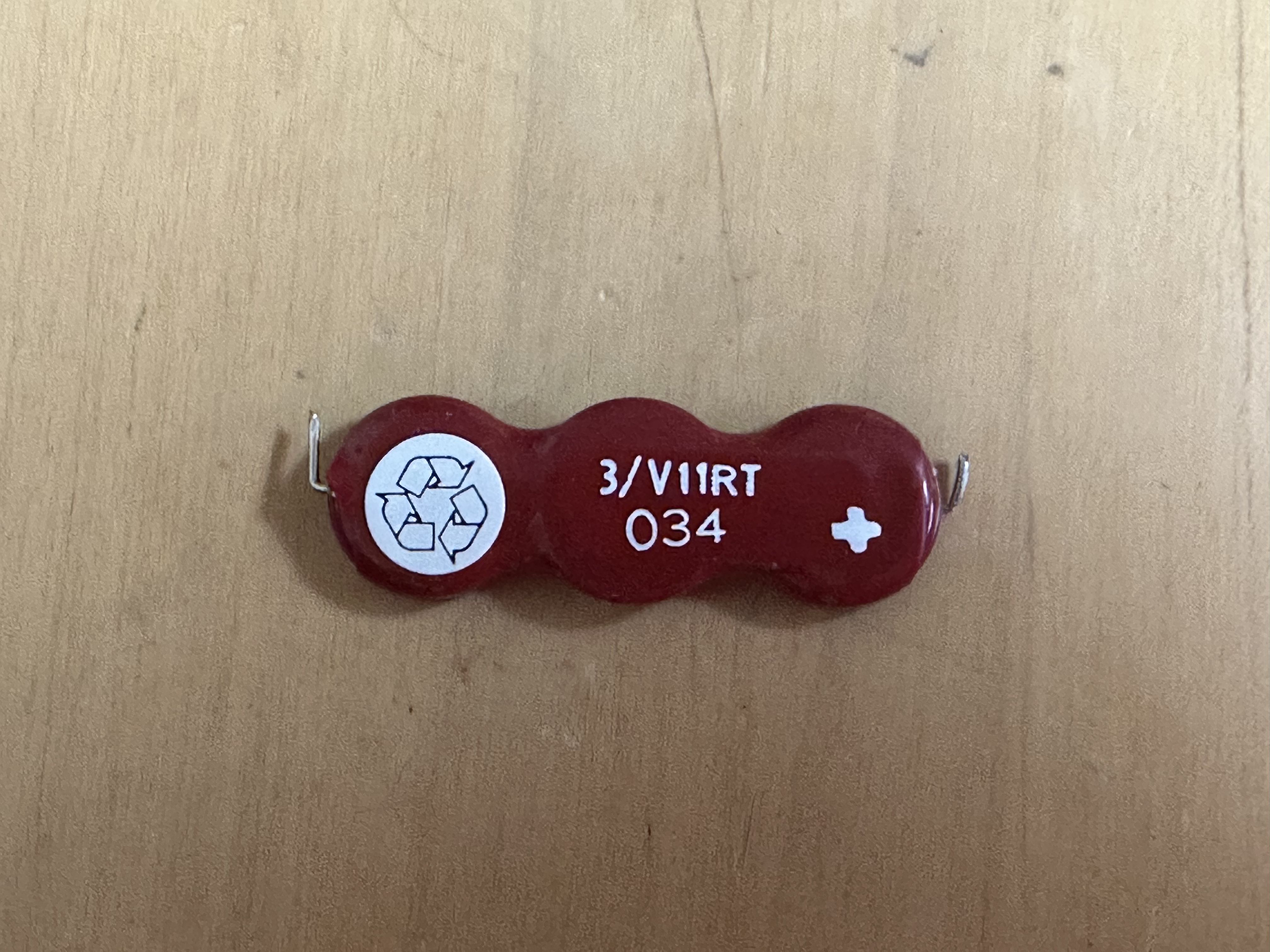
|
3/V11RTChemistry: NiCad Cell Count: 3 Voltage: 3.6V? Capacity: 11mAH |
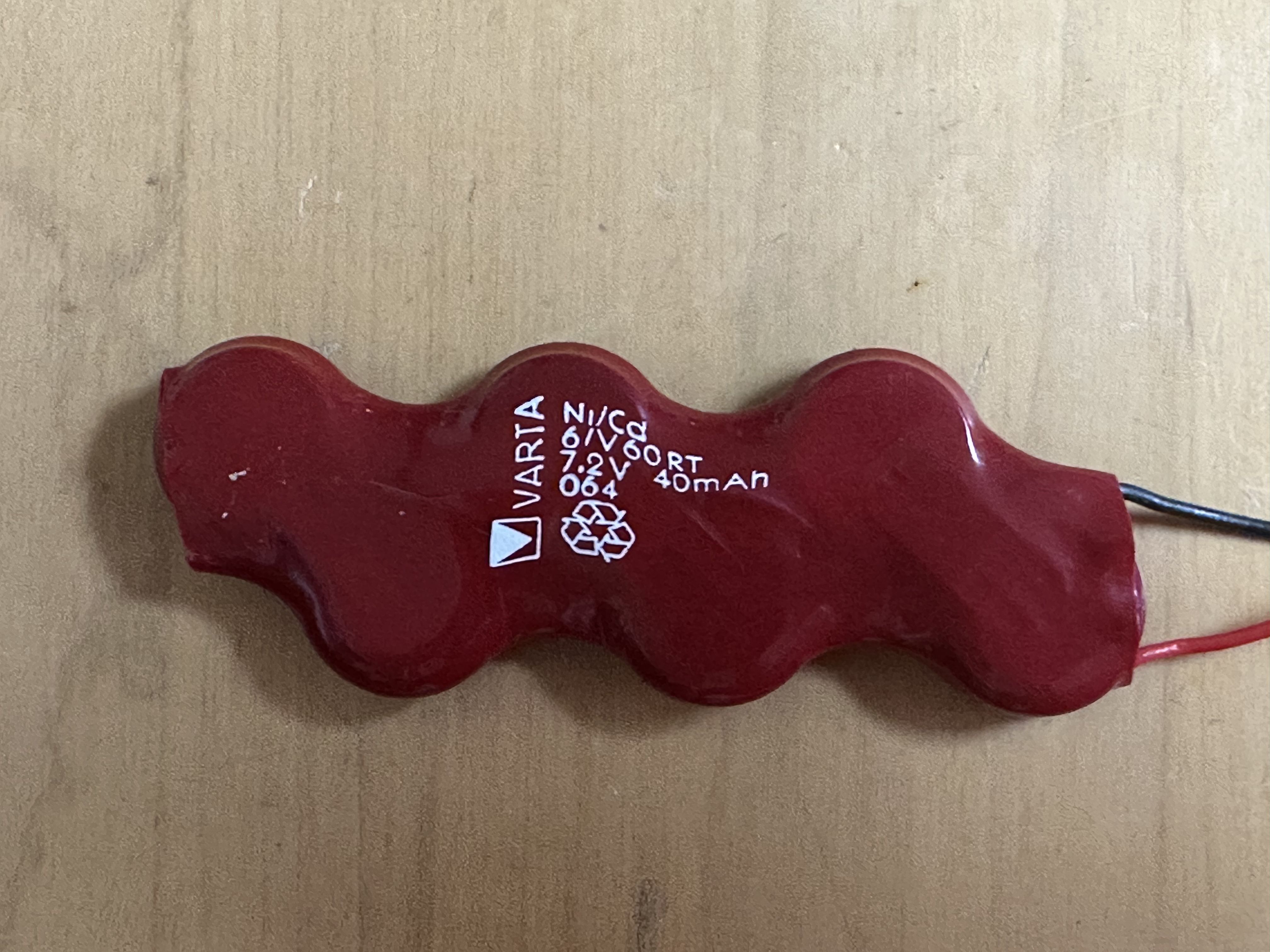
|
6/V60RTChemistry: NiCad Cell Count: 6 Voltage: 7.2V Capacity: 40mAH |
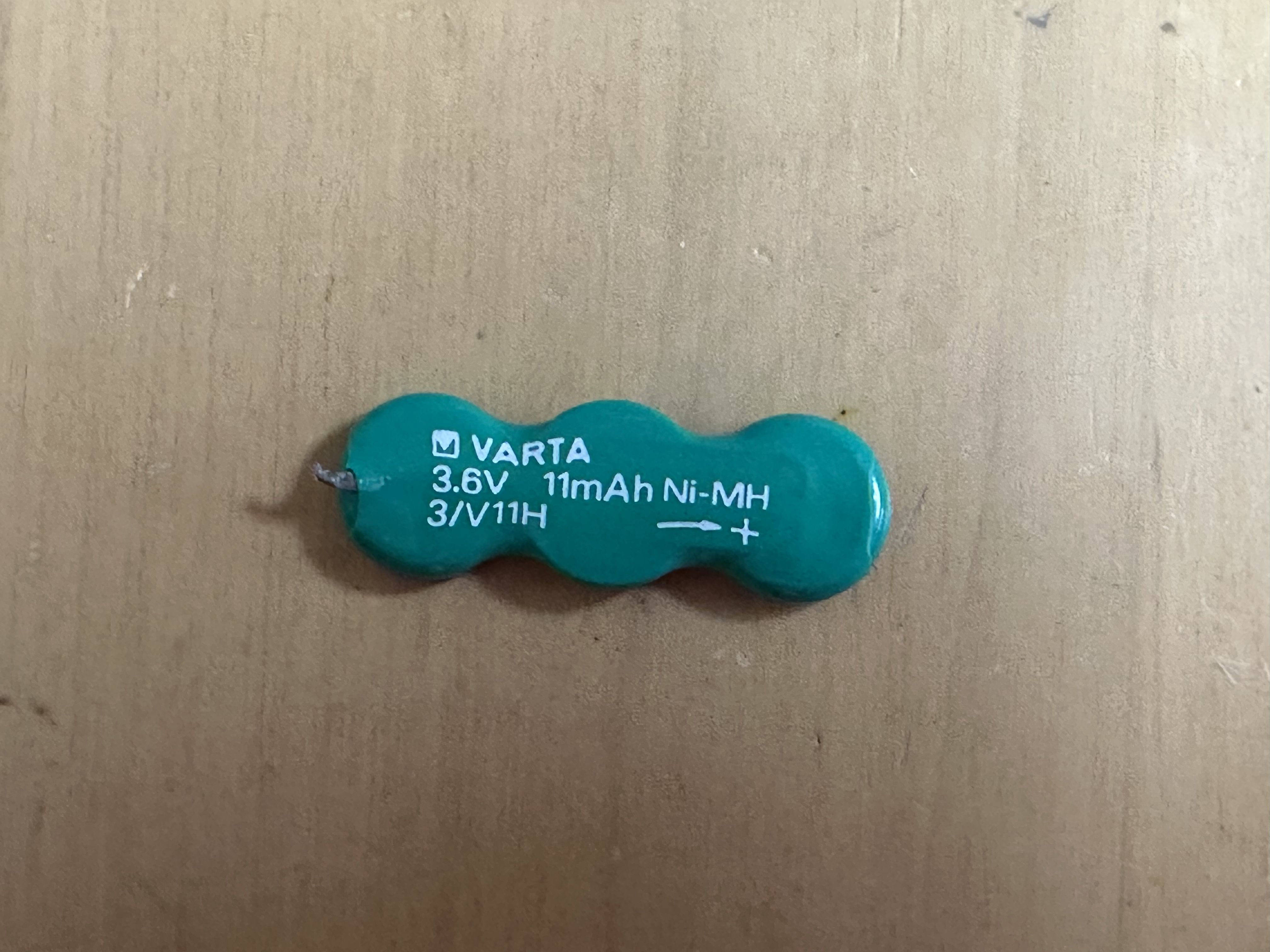
|
3/V11HChemistry: NiMH Cell Count: 3 Voltage: 3.6V Capacity: 11mAH |
|---|---|---|---|---|---|
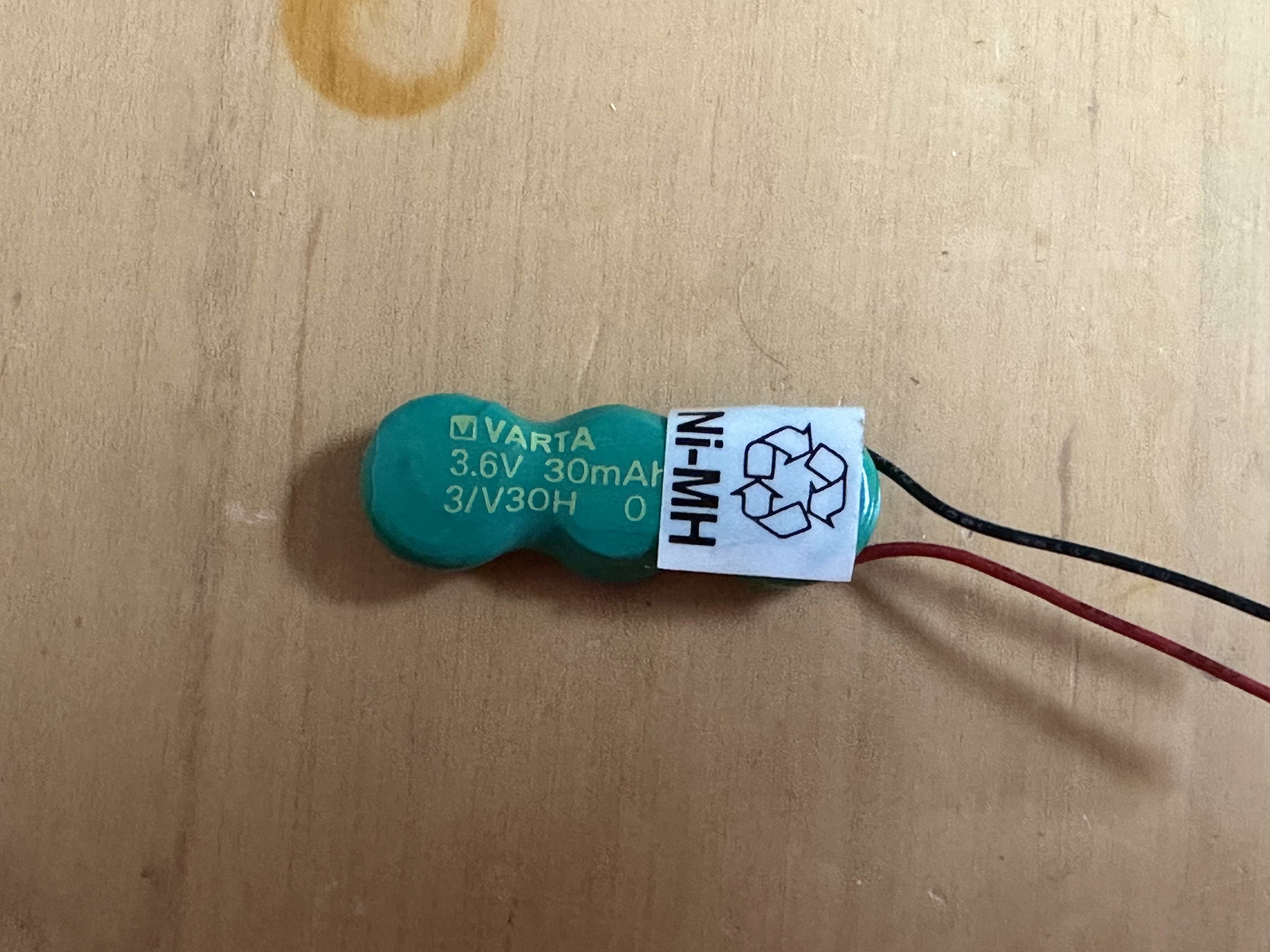
|
3/V30HChemistry: NiMH Cell Count: 3 Voltage: 3.6V Capacity: 30mAH |
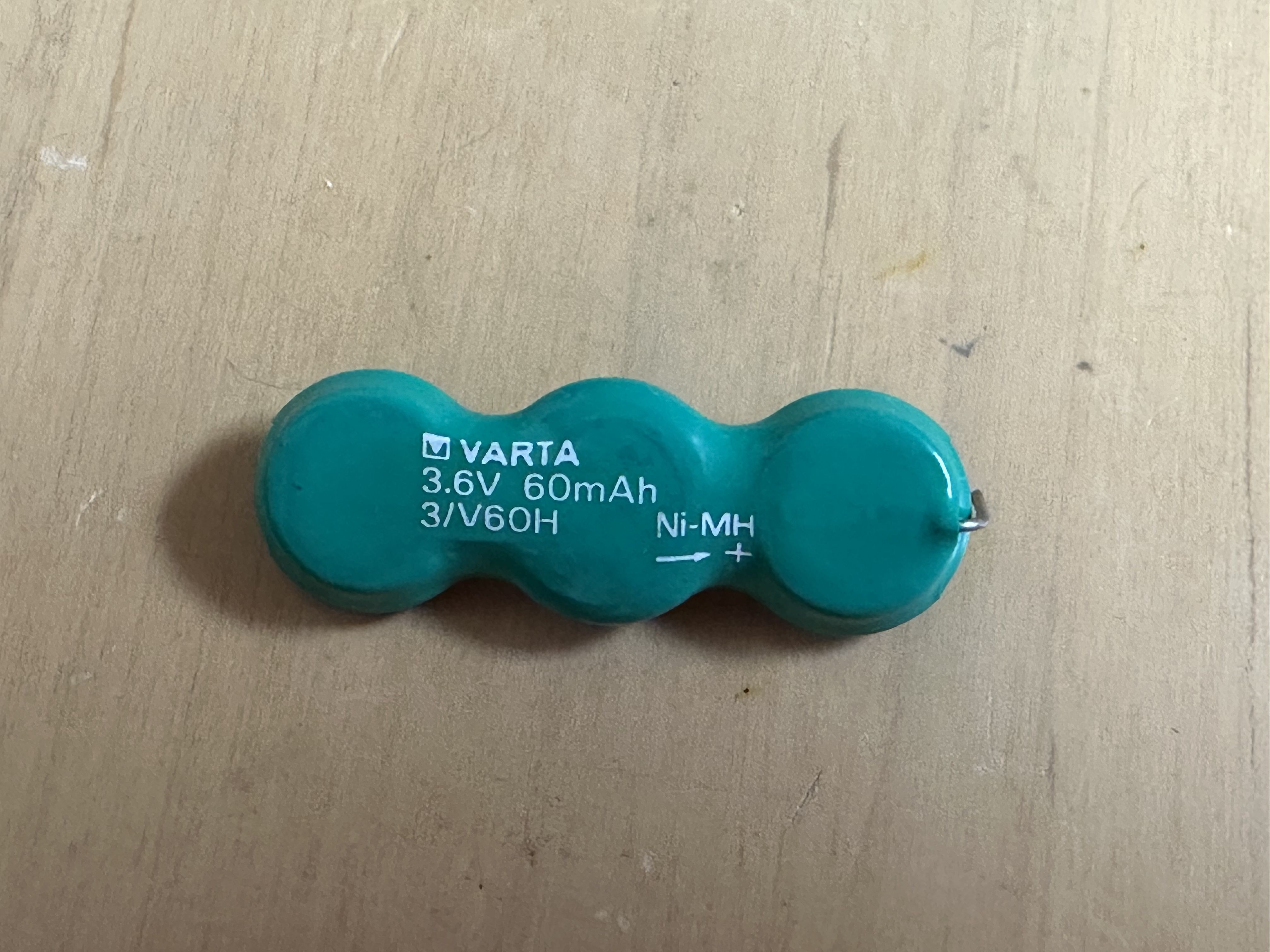
|
3/V60HChemistry: NiMH Cell Count: 3 Voltage: 3.6V Capacity: 60mAH |
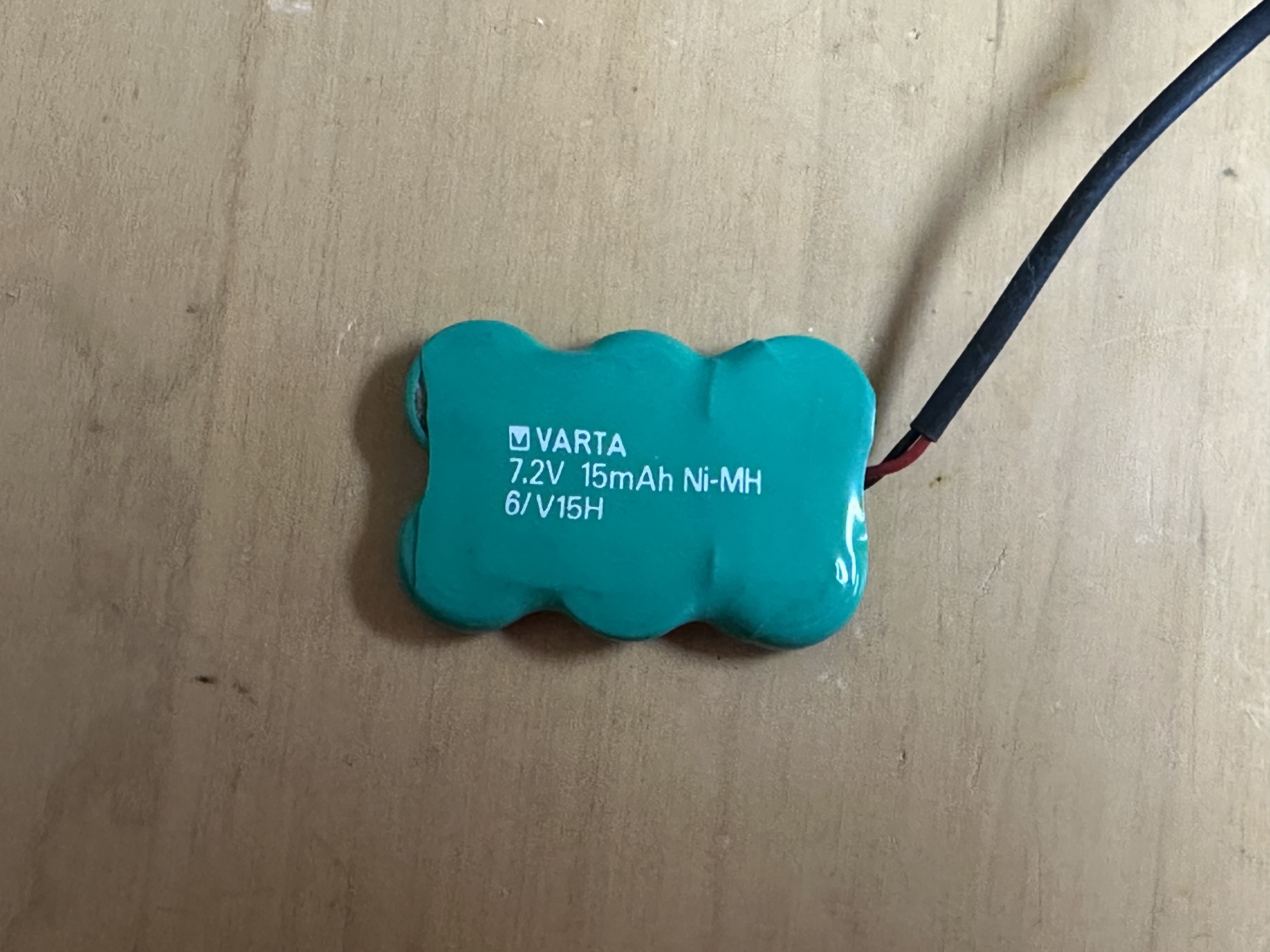
|
6/V15H (2x3)Chemistry: NiMH Cell Count: 6 Voltage: 7.2V Capacity: 15mAH |
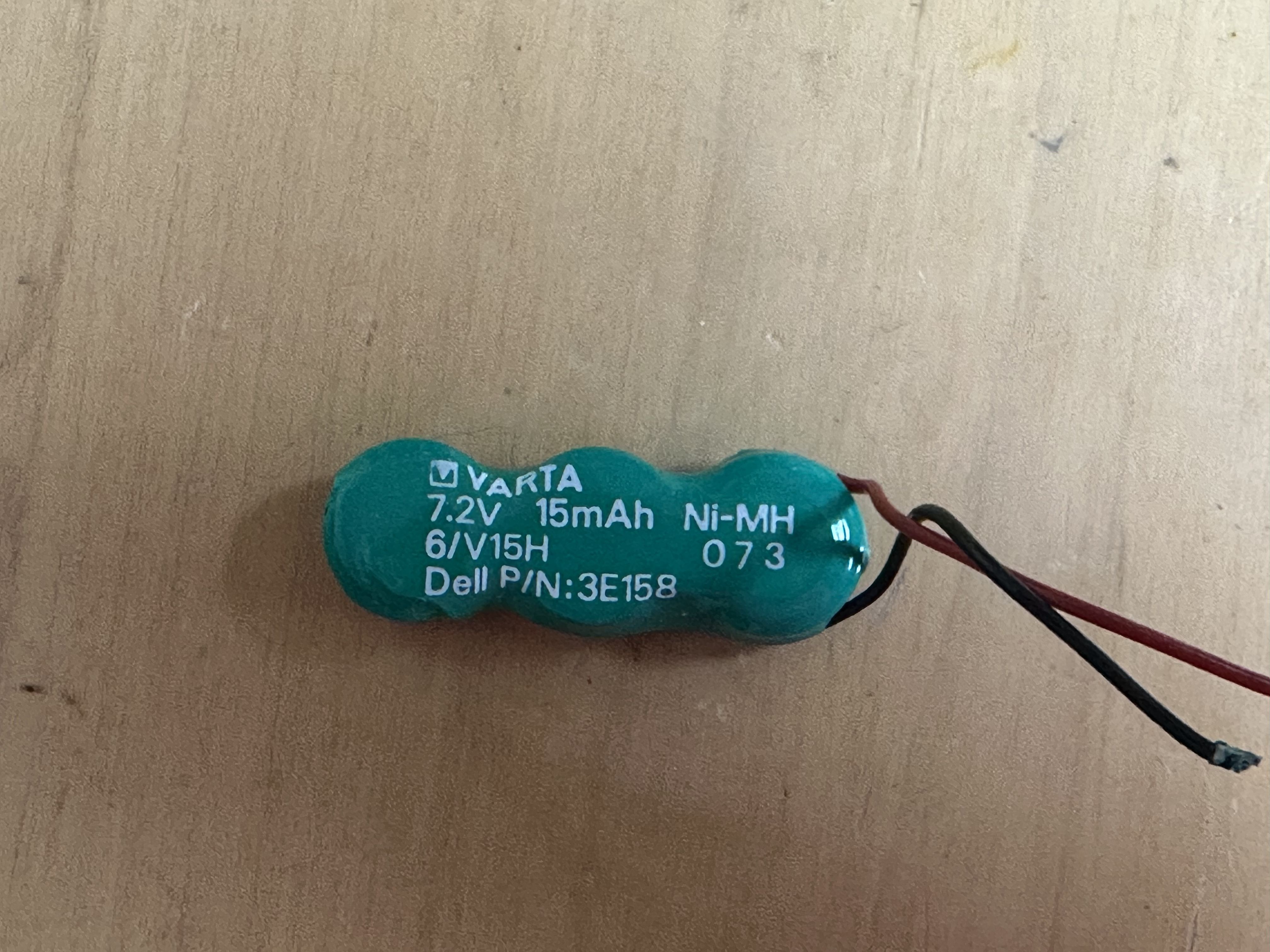
|
6/V15H (1x3)Chemistry: NiMH Cell Count: 6 Voltage: 7.2V Capacity: 15mAH |
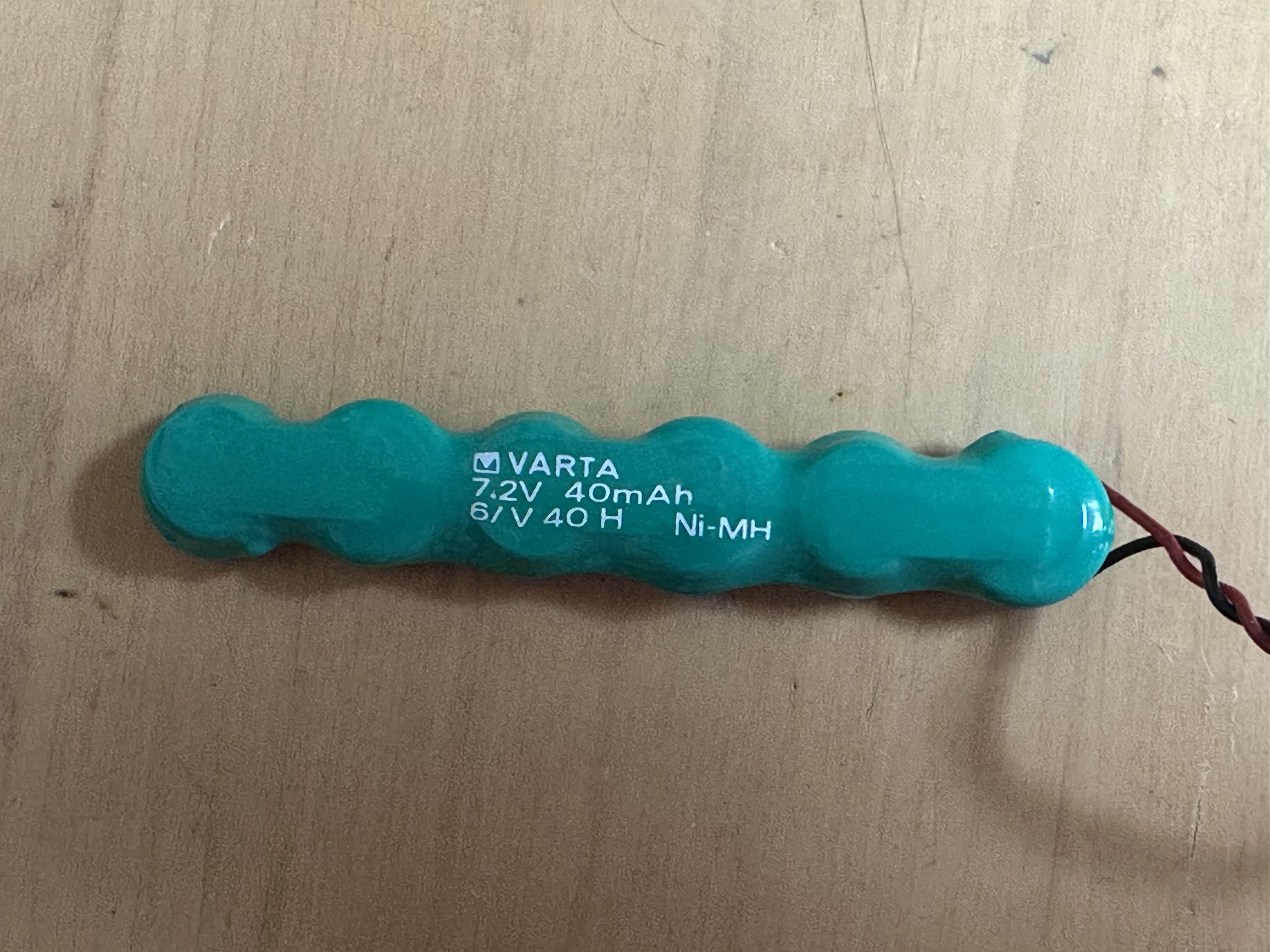
|
6/V40HChemistry: NiMH Cell Count: 6 Voltage: 7.2V Capacity: 40mAH |
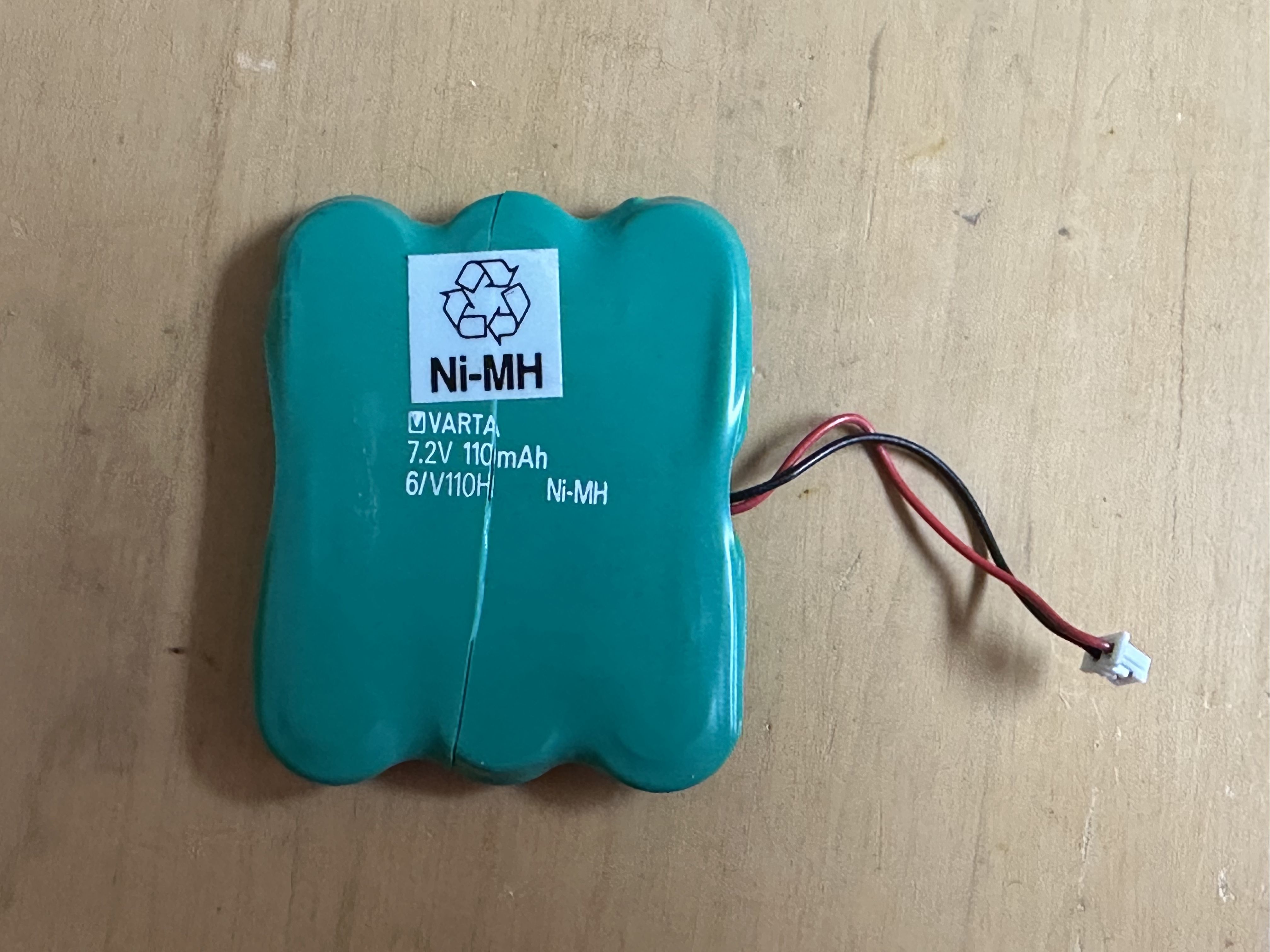
|
6/V110HChemistry: NiMH Cell Count: 6 Voltage: 7.2V Capacity: 110mAH |
Other NiCad/NiMH Batteries

|
IBM 66G3755Used in ThinkPad 750 and 360 Series Chemistry: NiCad Cell Count: 3 Voltage: 3.6V Capacity: 60mAH |
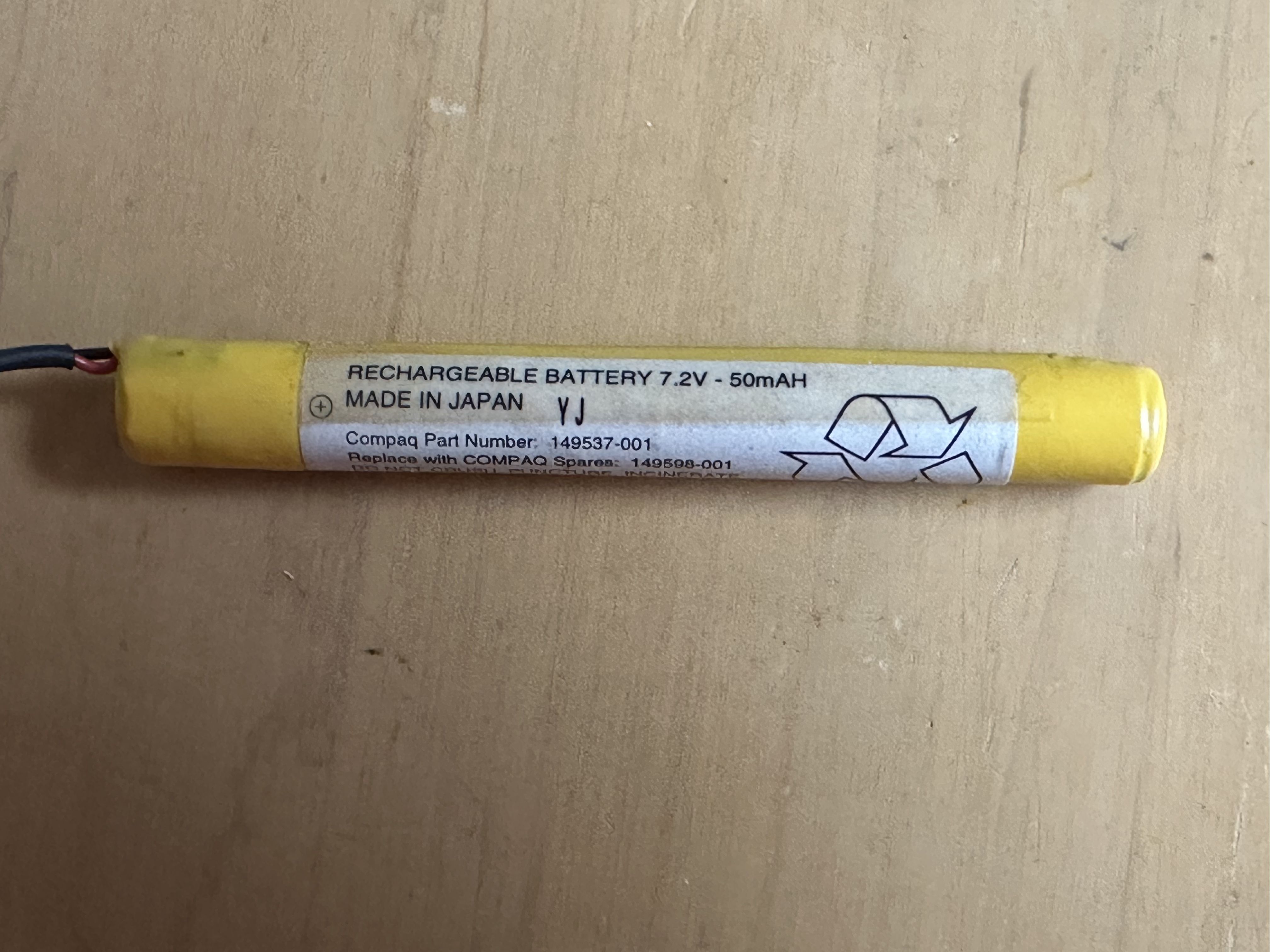
|
NiCad Stick BatteriesLTE Elite CMOS Battery Pictured here. |
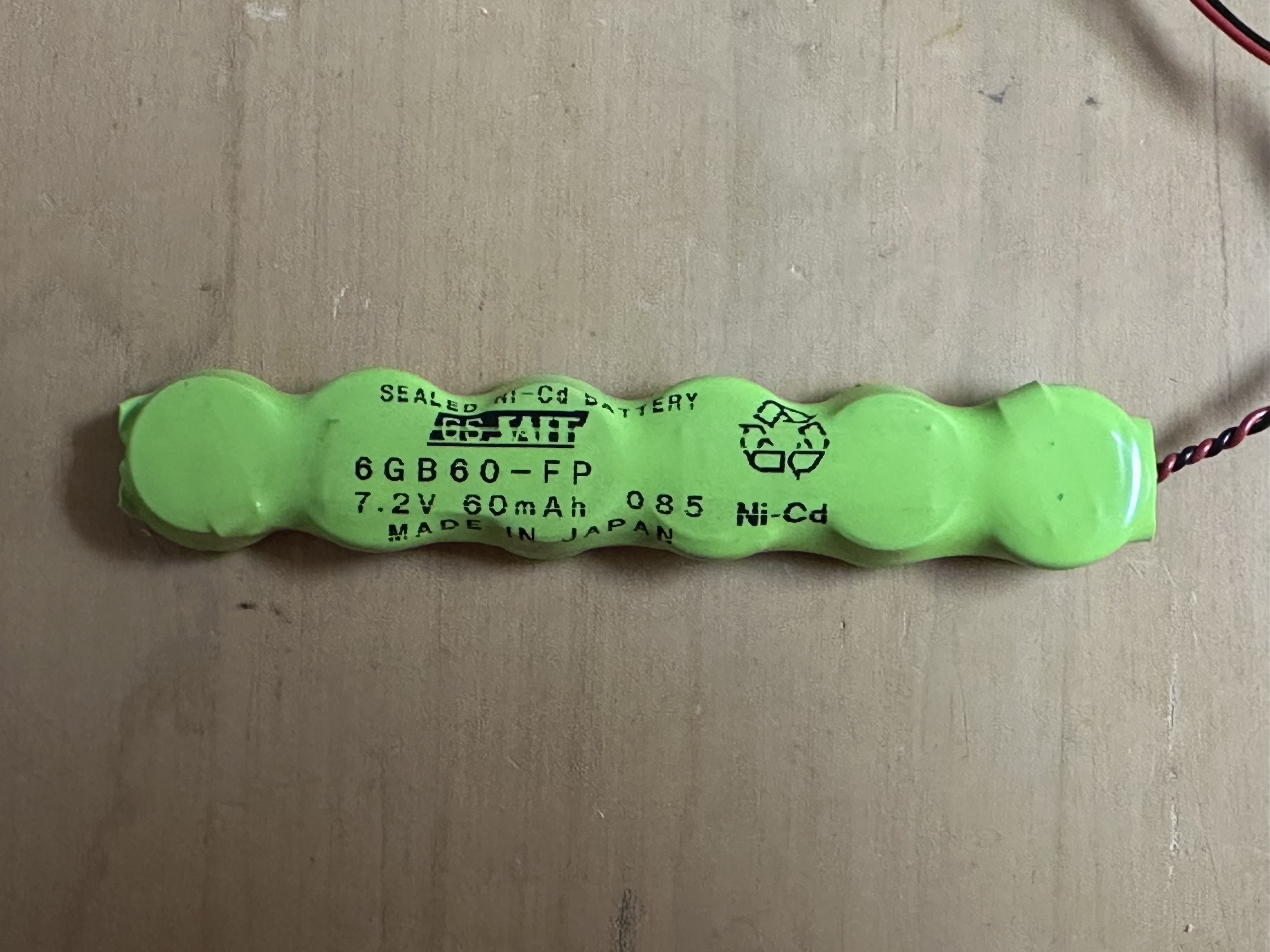
|
SAFT 6GB60-FPUsed in the Dell Latitude XPi Chemistry: NiCad Cell Count: 6 Voltage: 7.2V Capacity: 60mAH |
|---|
Page last updated (MM/DD/YYYY): 05/20/2024
Update Reason: links and table updated
Back-Navigation
Home < Repair Portal < Knowledge Base < Battery Leaks < Laptop CMOS Battery Leaks